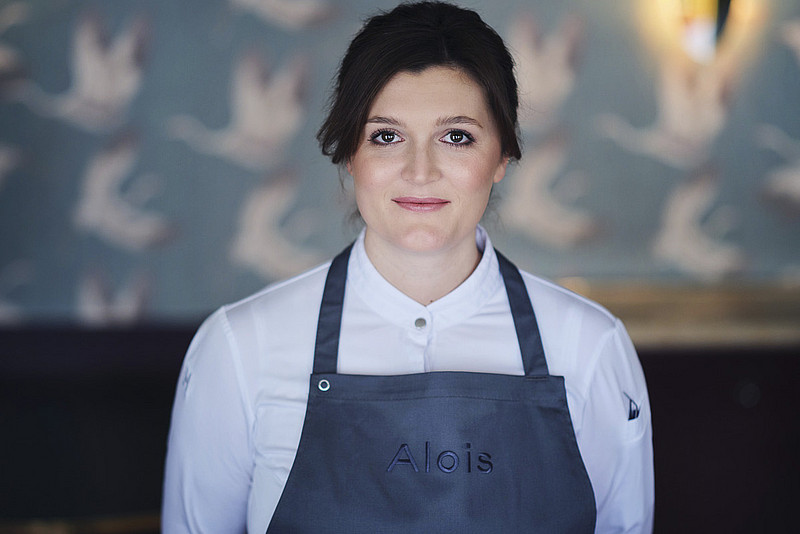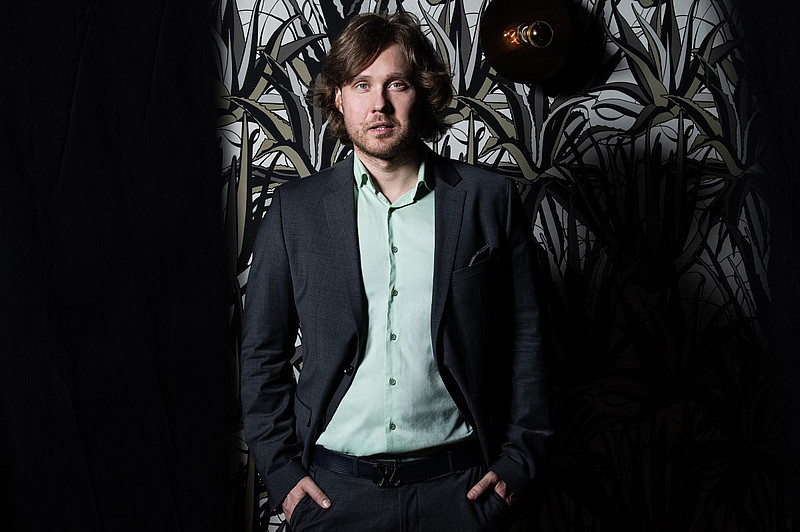Restaurant-Guides
Falstaff: No complaint against Michelin support
KITZBÜHEL. The financial support for the return of the Michelin Guide will apparently not lead to a legal dispute. The publisher of rival guide Falstaff, Wolfgang Rosam, has decided not to take legal action, as became clear during a discussion at the Alpine Hospitality Summit 2024. Rosam had announced legal action immediately after announcing his support for the return of the Michelin Guide. However, he stood by his criticism of the support from Austrian advertising. "Their stars are certainly a global currency. But it can't be right for a billion-euro car tyre company to receive 600,000 euros from the budget of Österreich Werbung for three years," said Rosam. The discussion with former hotelier, restaurateur, blogger and author Sepp Schellhorn also centred on the economic situation in the industry. Schellhorn does not believe that customers' willingness to pay is infinite. He believes that "ten per cent more net from gross for employees" is the basis for a recovery in the catering industry by reducing non-wage labour costs Rosam is convinced that the economic situation can be brought under control with successful entertainment ("In New York's top restaurants, you don't pay for a menu, you buy a non-refundable ticket months in advance, just like for a show")
<p<p>The Alpine Hospitality Summit by Prodinger on 16 May 2024 was a meeting of renowned representatives of the Austrian tourism industry in the field of hotel real estate. Thomas Reisenzahn, Managing Director of Prodinger Tourismusberatung, used the example of Tyrol to show that the number of hotels and, to a lesser extent, the number of rooms offered in them has been in continuous decline over the past decade: "On the other hand, the number of commercially available holiday flats has shot through the roof, increasing by 66 per cent," he said, demonstrating the continuity of this development and showing that coronavirus was by no means the trigger. "Holiday properties are currently not being sold, but are ending up on the market as rentals," he said, citing one consequence. Lawyer Markus Kroner subsequently found another reason for the boom: "In case law, the trend has moved away from pure, non-commercial room rentals. Nowadays, anyone offering their room via a platform actually has to register a business."</p
<p>The boom in holiday flats leads directly to problems in Alpine gastronomy, which was the subject of a contentious debate under the snappy title "Bye Bye Half Board! Hotel catering in the devil's kitchen". Low profitability and not least the lack of staff are causing a significant decline in hotel gastronomy.
Franz Staggl, restaurateur and industry representative in the Tyrolean Chamber of Commerce, pointed out that the combination of reduced gastronomic offerings in hotels and fewer local restaurants is jeopardising the quality promise of local tourism.
During the gastronomy discussion, the Harisch-Hotels for Kitzbühel and Lukas Sendlhofer ("Luke-s Wohnzimmer", Bad Hofgastein) showed how innovative concepts can be successful in hotels. In any case, the summit is strongly characterised by the presentation of successful models. For example, when Josef May, Prodinger Steuerberatung, used a comparison of 15 top businesses to illustrate how a GOP that is currently declining in the industry is continuing to grow in these companies. With the Krallerhof and Puradies, both in Leogang, as well as the Stanglwirt in Going, some of these hoteliers were also represented on the podium themselves. Even more important, however, are probably future or recent examples of success. When it comes to visual appearance, the Summit traditionally features convincing architects such as this year Christian Rottensteiner, NOA Architekten Bozen, on the podium, who also provide insights into successful international models. Among others Elisabeth Gürtler ("Alpine Resort Sacher Seefeld"), Stefan Eder ("Coolnest"), René Koch ("Stoos Lodge", Switzerland), Max Ramoser ("AEON Bozen") and Patrick Brändle ("Re:Mind", Jenbach) were able to present their experiences and plans themselves.
<p<p>Other hotels are purely virtual. The new trend report "Next Generation Hotels" by co-author Marco Riederer, Prodinger Tourismusberatung, was presented by architect Christian Prasser as part of a study on concepts for next-generation alpine hotels, which he developed with 50 students as project work at the New Design University St. Pölten. The student project, with its astonishing professional visualisations, presented some spectacular solutions. "OK, Boomer?" author and Prodinger Managing Director Marco Riederer provocatively quoted the pitying question of understanding from GenZlern.
<p<p>However, the realisation of new ideas requires appropriate financing options. Sometimes internationally operating hotel groups have it easier. The top managers from Accor (Falk Laudi), Deutsche Seereederei (DSR, Torsten Vey) and VAYA (Martina Boettcher), who met in a discussion, saw great potential for development in the Alpine region and praised the predominantly positive reception of the tourism associations in the regions.
<p<p>In a concluding top-level discussion, Erich Falkensteiner for Falkensteiner Hotels (FMTG) described how the company uses crowdfunding as an alternative form of financing and was able to raise 65 million euros within four years. There was a consensus that bank loans alone are no longer sufficient. "In Austria, financing is predominantly very conservative, but the corset of the banks is getting tighter and tighter," lamented Florian Zellmann, authorised signatory of Österreichische Hotel- und Tourismusbank (OeHT). Despite subsidised loans, the equity ratio of 40 per cent now required for new investments means that the limit has been reached for many. ÖHV Secretary General Markus Gratzer pointed out the aggravating environment. Due to the collective labour agreements, it is already clear that employee costs will continue to rise noticeably, and the outlook for inflation and interest rates is not very positive either. The recognisable decline in hotel margins is already making banks less willing to provide financing. Thomas Reisenzahn was able to substantiate this trend with figures. In Tyrol and Vorarlberg, investments recently fell by over 40 per cent. This is because crowdfunding, like FMTG, requires a highly attractive product and bonuses for the crowd, which ensures higher hotel occupancy rates. Otherwise, this financing via venture capital is also more expensive for the business.</p
<p>"We have ruined a good opportunity for attractive financing, especially in western Austria, because buy-to-let investor models are generally classified as leisure residences and the tourist core has been taken away from them," regrets Reisenzahn, who would like to import a solution from his southern neighbour to Austria: "Our hotels have too little equity, but too many hidden reserves. A revaluation balance sheet would not cost the state much. In South Tyrol, the holiday hotel industry could be boosted by this revaluation option," he concluded.</p




